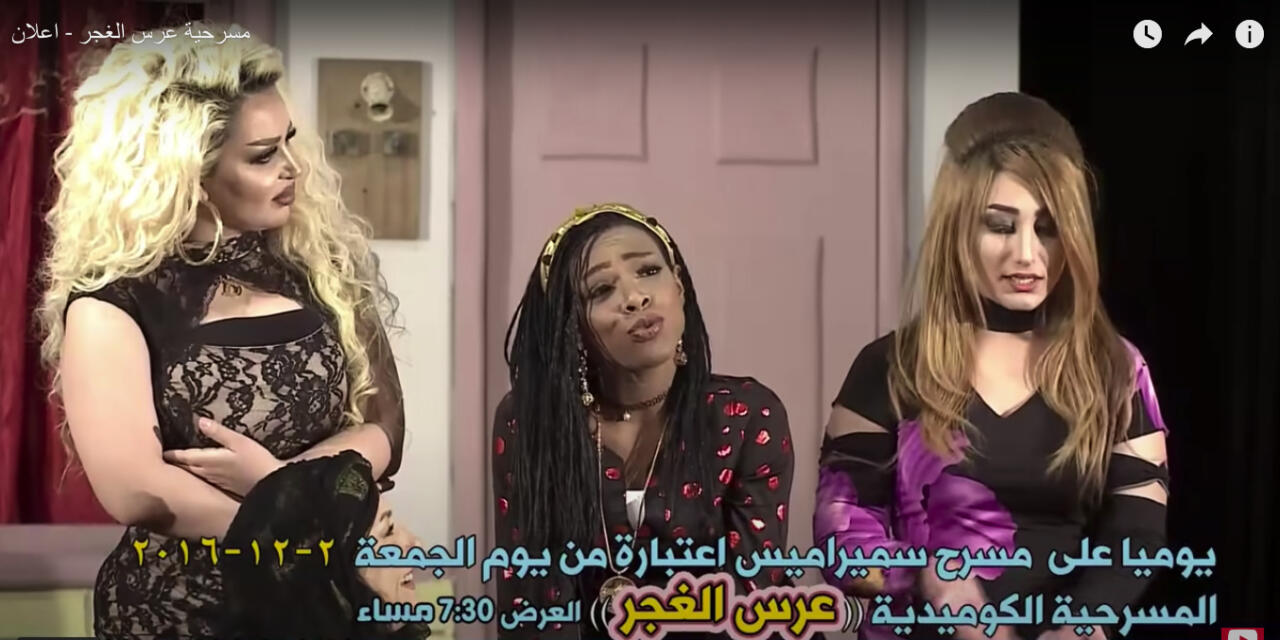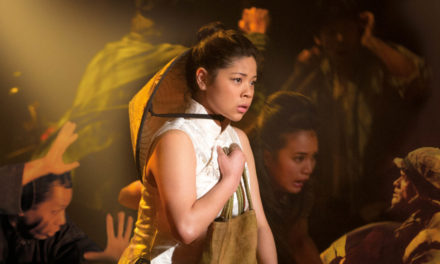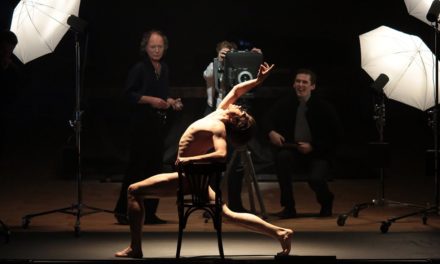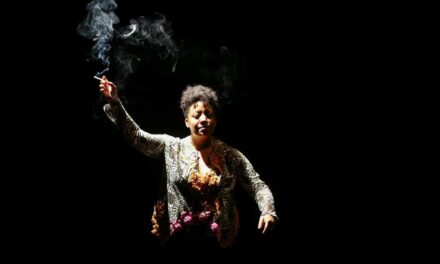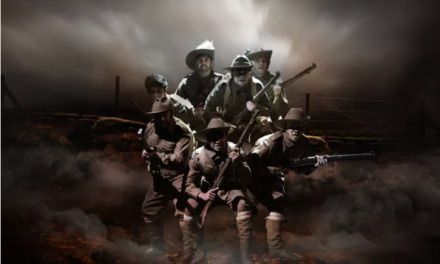Introduction
The ongoing unsettling shift of my identity from a “white” Iraqi back home (in Iraq) to a person of color in Canada, where I am surrounded by conversations about and personally experience racism and discrimination, has helped me reflect contrapuntally on similar issues in Iraq. Unfortunately, Iraqi society is often in denial of racism and discrimination against equity-deserving groups. When asked about these issues, Iraqis often feel uncomfortable and thus dismiss the topic by taking it lightly or responding that we (Iraqis) should address greater concerns such as poverty, corruption, safety, and security. As a theatre scholar, I have observed racism and discrimination perpetuated in Iraqi low comedies. Although it might be seen as “airing dirty laundry”, my intention in this essay is to open a conversation and spark an interest among Arab and Iraqi theatre critics and artists to raise awareness of racism and discrimination in theatre in the region.
Comedy in Iraq
Since the Iraq War in 2003, the production of “al-Comedya al-Habitta wa al-Masrah al-Tijari” (low comedy and commercial theatre), as identified by Iraqi theatre professionals and artists, has mushroomed in Baghdad. In post-war Iraq, this genre, while undeniably providing a comedic outlet during a traumatic time, incorporates offensive representations of equity-deserving groups, which in turn normalizes and reinforces discrimination, racism, and derogatory stereotypes.
When asked about comedy in Iraq, theatre artists often romanticize the past by referring to what they describe as the “true” comedies of the 1950s, ‘60s, and ‘70s, such as Al-Dabakhana (the tannery; 1967) and “true” comedians or comedy writers such as Salim al-Basri and Yousif al-Ani. Commercial comedy emerged during the Iraq-Iran war of 1980-1988. Although received with disdain by theatre critics, the genre provided relief and distraction from the pessimism and tragedy of the war. The comedies were quite popular at the time and are still remembered fondly by Iraqis. Among the best were Al-Khait wal Asfur (the thread and the sparrow) and Bait wa Khams Beeban (a house with five doors). In addition to laughs, commercial comedies offered social commentary and moral guidance.
In the 1990s, another version of low comedy appeared. They were full of coarse language, vulgar dance, dirty jokes, and ridicule of the poor rural character from the southern part of the country. Among those are Juthoor al-Teeb (roots of goodness), Hafla li Sayyed Muhtaram (a party for a respectful gentleman), Soog Mredi (Mredi bazaar) Shurja fi Orupa (Shurja in Europe), Beit al-Tin (the clay house) and many others. In such plays, the rural character (ibn al-Reef) is depicted as stupid, naive, and uncultured. One of the factors that prompted the rise of such comedies was the economic sanctions and embargo imposed by the UN after the Gulf War in 1991. Those sanctions resulted in high rates of poverty, austerity, and inflation, leading many professional theatre artists to find a better income in commercial comedy. Another factor was Saddam’s “al-Hamla al-Imaniyya” (faith campaign), led by the secular Baath regime to infiltrate and gain the support of Islamic fundamentalists. Due to this campaign and its Islamic policies, some entertainment venues like nightclubs (al-Malahi al-Lailiyya) were closed, forcing female dancers to resort to theatre as an alternative space to survive.
Contemporary Comedy
Except for a few humble satirical and political comedies such as Ahlam Cartoon (cartoon dreams) and Nisaa al-Parlaman (adaptation of Aristophanes’ Assemblywomen), comedy in post-war Iraq (2003-present) has sunk even lower to become purely farcical, incorporating offensive content with entertainment as its only purpose. With boisterous and sexual jokes, buffoonery, drunkenness, corny wordplay, coarse language, pranks, and slapstick humor, these performances are produced to arouse belly laughter.
This laughter is evoked at the expense of equity-deserving groups. Groups such as little people, the disabled, the Iraqi Roma (“ghajar” / Kawliya), and Blacks are shamelessly demeaned and ridiculed. For example, in Ishq al-Ghajar (gypsy love), written and directed by Thamer al-Shatri and produced in Baghdad in 2016, one of the ghajar female dancers is a Black actor, named Zainab Cacao (Zainab the Chocolate). Her character name in the play is Sudfa (accident), which indicates that such a Black person does not belong to us “white” Iraqis; she is an accident. Sudfa is made fun of every time she is on stage, and one can hear the audience’s raucous laughter in the YouTube video/performance.
Ishq al-Ghajar
Sudfa is introduced to an old man for marriage. Surprised by her skin color, he looks at her face and, instead of saying her name, he cries, “sakhla” (a female goat). Then, the old man adds, “This is the first time an Iraqi man is marrying Obama”, referring to the former US presidential family. Sudfa is also described as “darkness” by the old man. When Sudfa asks if the old man loves her, he responds, “I drink half a bottle of whisky every day to tolerate your appearance.” The same actor performs a similar role in a play called Shakhteen (Iraqi dialect for the mentally disabled; 2020), in which she is described as Coronavirus.
Shakhteen
In Kintaki (Kentucky; 2017), written and directed by Thamer al-Shatri, a popular Black actor is harshly mocked on stage. Playing the role of Santa Claus, he sings, “Happy New Year!” then two men interrupt him and comment, “This is not Baba Noel, this is baba ghanouj.” (They pull down his fake beard) “He is an eggplant!” In another scene, they mock him by saying he should go back home to Somalia where he can wear leaves around his waist, dance, and scream. They suggest he will take a plane that has no pilot but rather, “a guerrilla driving the plane while feeding her baby,” and no flight attendants but “monkeys jumping around and serving bananas.”
Kintaki
Discrimination and racism against Afro-Iraqis in particular and Afro-Arabs in general are unfortunately rooted in Arab culture and are informed by a long history of negative representation. They are called racist names and described in derogatory ways. The most common word used to refer to an Afro-Iraqi is “abd” which means a slave. Other words commonly used are: “abu allil” (night/darkness master), “abu samra” (dark-skinned person), “wahash attawa” (black eggplant), “annili” (dark indigo), “tees” (wild male goat), “tangoora” (possessed by evil spirits) and so on.
As for little people, they are cruelly derided in these performances. They are present in almost every production. They are belittled and caricatured as insignificant and weird creatures. In one of the scenes in al-Raqisa wal Tabal (the female dancer and the drummer), a little person, called Huda al-Sanfora (Huda the Smurf), is learning how to dance. The male trainer makes fun of her appearance and voice by comparing her with the other beautiful female dancer. In another play, Bateekh fi al-Mareekh (watermelon on Mars; 2013), the same character is poked fun at and described as a baby doll, a slipper, an infant, a supernatural creature, a shisha (waterpipe), a canon shell etc.
al-Raqisa wal Tabal
Bateekh fi al-Mareekh
Characters with mental and physical disabilities are also made fun of and called offensive names in these plays. Actors sarcastically perform characters with Down syndrome (“al-mangholi”), a limp (“a’raj”), a speech impediment (“artal”), a visual impairment (“a’ma”) etc. Moreover, ghajar/ Kawliya are used as sexual commodities to attract the audience with their erotic dance and bodies. Examples of these characters can be seen in many plays, such as Khan Jikhan (Jikhan inn), Ako Arab bil Mareekh (there are Arabs on Mars), Warath Baba kharaba (dad’s inheritance of ruins), Masaj al-Khair (good massage), etc.
Unfortunately, several mainstream actors began to take part in this type of comedy, but the question is why do actors from equity-deserving groups accept these roles? Is it solely for financial reasons? By playing these roles and acting ridiculous and hideous, these actors contribute to the degradation of their self-image and the image of their communities. Instead of being condemned by society, these performances routinely sell out, where boisterous laughs from the auditorium are unable to awaken the indifferent conscience of the spectators.
This post was written by the author in their personal capacity.The opinions expressed in this article are the author’s own and do not reflect the view of The Theatre Times, their staff or collaborators.
This post was written by Amir Al-Azraki.
The views expressed here belong to the author and do not necessarily reflect our views and opinions.

